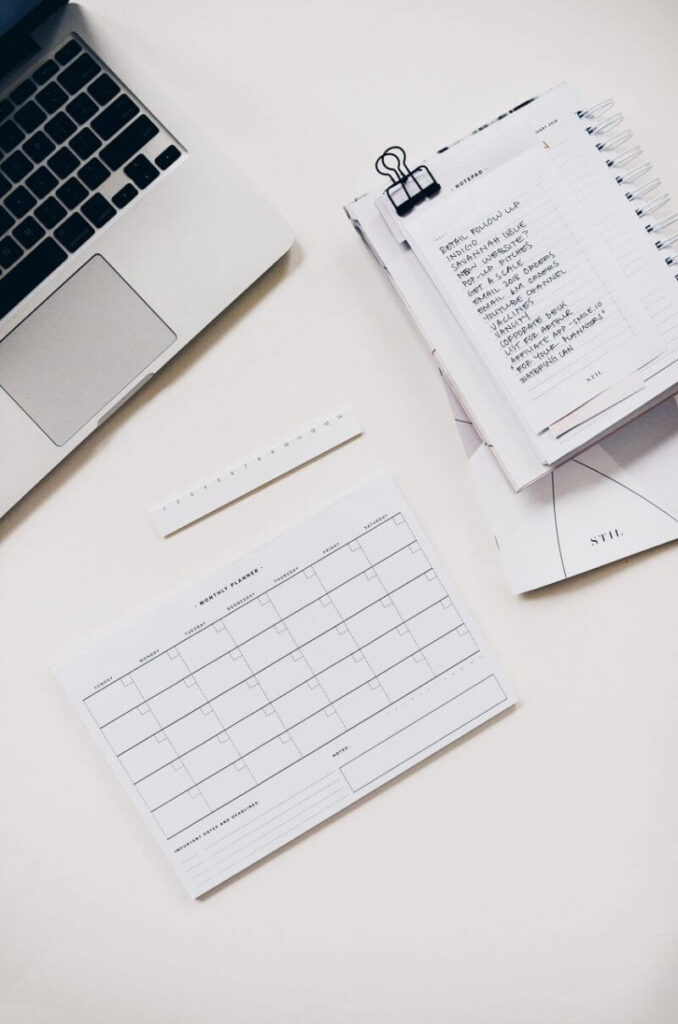
Organising Successful Meetings
Meetings are important for several reasons. They can create stronger team bonds as there is a set time for communication. This is vital in any business or workplace and a meeting can be a chance for employees to get together and share productively. Any big decisions within a company should always have a face to face meeting. This is a sign that you are giving the decision and people involved the time and respect needed to resolve it, instead of using a video call. Organising successful meetings can be a challenge, but when achieved, make a massive difference.
How to organize effective meetings
You are far more likely to create solutions for issues if everyone puts their heads together. However, pointless, unorganised group meetings are both a waste of time and can have negative effects on moral. Team meetings will lose their value if held unnecessarily and delegates will arrive feeling unmotivated. It will also lessen the value of the content so your employees won’t be as focused. Well thought out, structured meetings are always the way forward, and here our step-by-step guide.
Before the meeting
Organising successful meetings begins before any delegate has arrived. As a golden rule, don’t call a meeting without some planning first. Not only does it look unprofessional, but it sets up the meeting to be unstructured and potentially time-wasting. If you are going to ask people to take time from the workday to attend a meeting, ensure it is for a good reason.
Promote morale
Consider if the meeting can be resolved with a bulletin or email. If there is a discussion to be had, a meeting might be more appropriate. Always ensure that only people relevant to the content are involved. We’ve all been stuck in a meeting which is of no importance to us. Not only does it lower morale in the said employee, but also promotes them to become a distraction.
Meeting goals and agenda
Once you have your goal and guest list in mind, set out how you want your meeting to run to be effective. Consider having someone write meeting minutes so you have a record of what was said and decided. Your plan doesn’t have to be incredibly extensive, just an overview. Prepare a sheet with a plan of the room arrangement, any equipment you may need, guest list, and agenda for the content. Consider if there is anything which would be helpful to send out to delegates ahead of time so they aren’t reading during the meeting. It’s always more productive to arrive at a meeting prepared and its a positive sign to delegates.
The venue
It’s vital to find the appropriate venue for your meeting. Somewhere within your workplace is convenient and allows delegates to arrive quickly, however, there is more chance of people becoming distracted, particularly if your workplace is small. A coffee shop is good for one-on-one or smaller meetings as it’s a chance to get out of the office and enjoy a cappuccino whilst you work. For larger-scale meetings, hiring out a meeting room venue is ideal. They tend to have extra facilities and equipment for businesses, so delegates are comfortable throughout. Hosting group meetings offsite can also boost morale and focus and is a nice change from the usual. Mixing things up in the workplace can stimulate new ideas and a fresh eye when making decisions.
During the meeting planning process
Meetings are either more free-flowing or tend to fit in more of a step-by-step structure. Regardless, you want to have some idea of how the meeting will go. Never let a meeting run on too long. Set a time scale and stick to it. Otherwise, it allows for both you and delegates focus to become lax. If you run out of time, either schedule another team meeting or consider whether any additional information can be sent in an email.
Meeting schedule
When organising successful meetings, having an agenda to stick to ensures you don’t spend too long on a certain topic. Ensure you plan time for discussion. No one wants to feel like they’re being talked at so always allow delegates to be involved. If you have a larger guest list, consider using poll apps to ensure everyone gets their say. Interaction is key to keep peoples focus and productivity levels high.
After you’ve hosted your meeting
Always ensure you follow up from a meeting. Send out the key points and decisions to delegates for later reading. This way they have a record of everything said. Following up after a meeting gives you a chance to see delegate satisfaction and make improvements for the next one.
Improving your presentation
Encouraging delegates to share their thoughts and ideas with each other boosts communication and ensure nothing was missed. Ask employees if there is anything that would make their meetings more effective. This could be holding it outside the office, trying a new strategy, including video content or covering things in a different way. Asking delegates about their experience shows you value their opinion and can help make gradual improvements to the ways you hold meetings. Show gratitude to your delegates for attending and sharing their thoughts. Encouragement and praise is a great way to boost morale and makes people feel valued within a business.
The final word
Having a clear and defined structure for your team meeting allows both yourself and delegates to focus on the task at hand. Feeling prepared during a group meeting allows you to feel more productive and make the most out of your meetings. Working in an efficient manner is vital, especially if your job is particularly high paced. Take a few steps to ensure you’re organising successful meetings and improve the way you communicate and meet in the future. These good habits will rub off on your delegates, making for a more harmonious work environment.


